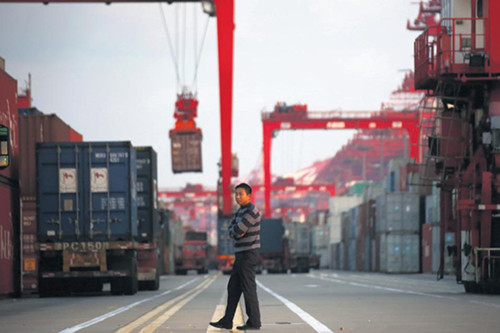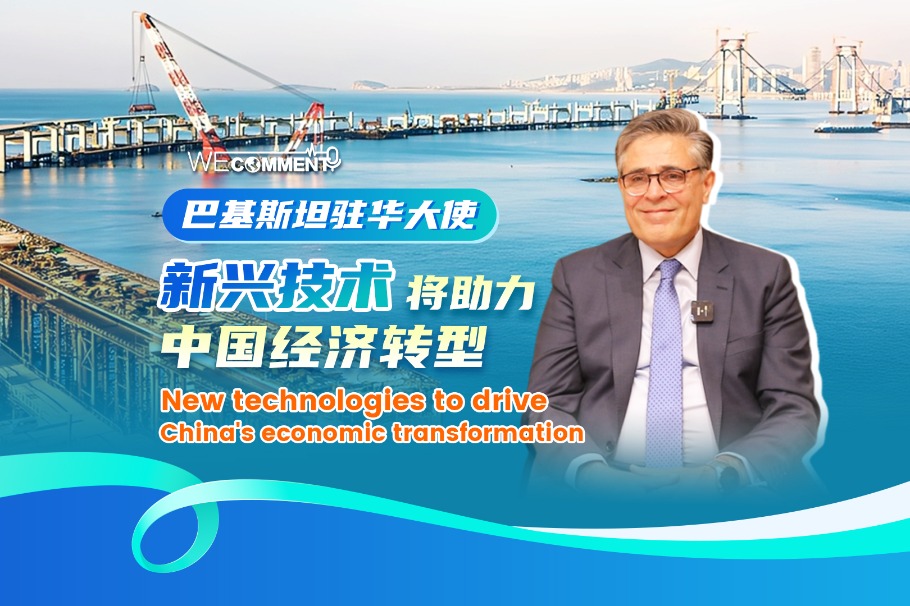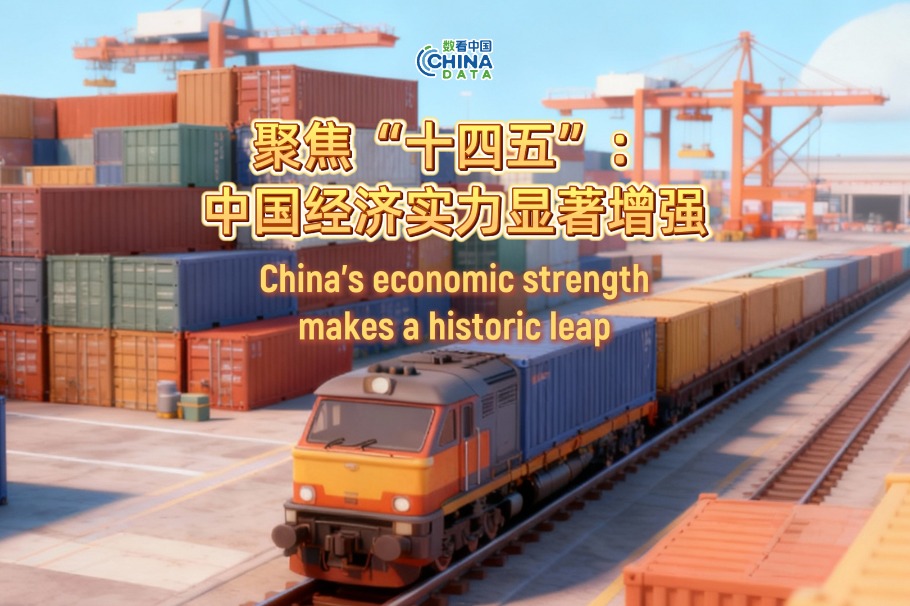Nation to bolster growth through more pilot FTZs


A truck driver walks in the Yangshan Deep Water Port, part of the China (Shanghai) Pilot Free Trade Zone.TOMOHIRO OHSUMI / BLOOMBERG
Municipalities and provinces already working to establish free trade ports
Many of China's pilot free trade zones, including in Shanghai and the provinces of Zhejiang and Sichuan, plan to build both coastal and inland free trade ports this year to put the country's economic growth on a firmer footing, government officials said.
They plan to gradually build free trade ports from coastal areas to inland areas, as well as diversify the service function and build new logistics hubs for air and freight transportation services in China's central and western regions.
Ying Yong, an NPC deputy and the mayor of Shanghai, said the city will explore the establishment of a free trade port in an effort to facilitate trade and investment, in the China (Shanghai) Pilot Free Trade Zone.
Such efforts will rely on Shanghai's existing facilities such as Yangshan Deep Water Port and Pudong International Airport.
A free trade port is set up within a country's or a region's borders but outside its customs supervision. It is a highly opened-up area that allows the free flow of most commodities, currencies and people.
Ying said Shanghai will apply a negative list approach to market entry, in which State-owned sectors and businesses are off limits to foreign investment. The move is expected to give foreign firms greater opportunities in the Chinese market.
China will grant more power to pilot free trade zones and explore the opening of free trade ports, according to the 19th National Congress of the Communist Party of China.
A dozen Chinese municipalities and provinces, including Shaanxi, Henan, Zhejiang, Tianjin, Guangdong and Sichuan, are already at the forefront of attempts to build free trade ports.
The China (Zhejiang) Pilot Free Trade Zone is banking on developing bulk commodity trade and high-end manufacturing to drive growth as it races to catch up with more established rivals such as Singapore and Hong Kong in the Asia-Pacific region, by operating a free trade port.
The Zhejiang FTZ has developed a plan for a free port within the zone to further promote commodity trade liberalization and improve global commodity allocation, with the whole industry chain of oil products as the core.
"The world's major free trade centers, such as Dubai and New York, are all defining themselves as international free ports or global logistics centers because this practice is an effective way to drive regional growth in the trade, finance and service sectors," said Zhou Weijiang, deputy director of the Zhejiang FTZ's administrative committee.
The building of China's free trade port is at the exploration stage and should be developed step by step, from ports along the coast and rivers to airports and dry ports in inland areas, said Bai Ming, deputy director of the International Market Research Institute of the Ministry of Commerce.
Free trade ports should be close to major transport hubs and economic hinterlands, gathering high-tech and high-level talent from all over the world, said Xue Rongjiu, deputy director of the Beijing-based China Society for WTO Studies.
He said free trade ports need to be supported by a strong government, a market-oriented and highly efficient operation institution and a completely internationalized service system. They should become areas with the best business environment in the world.
Apart from applying to build free trade ports, FTZs have also clarified targets to deepen reform of their pilot FTZs. "Reform in free trade zones will be strengthened and some reform experiences from the pilot areas are expected to be further promoted all over China," Xue said.
Gao Feng, spokesman of the Ministry of Commerce, said the ministry this year will continue to promote reform in FTZs, reduce the negative list of foreign investment in the pilot FTZs, improve the quality of FTZs development, and promote more specific and systematic reform experiences nationwide.
MOST POPULAR
- 1 Chinese cities dominate global science rankings for first time: Nature
- 2 Beijing cautions tourists over Japan travel risks
- 3 Nation offering great opportunities for global biz
- 4 China implements higher-level financial opening-up policies in Hainan
- 5 Policy allowing Guangdong vehicles to travel to Hong Kong takes effect







